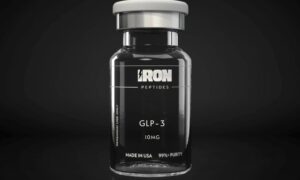Undergoing weight loss surgery is a life-changing decision that requires a significant commitment to maintaining your health post-operation. The journey doesn’t end in the operating room; it’s just the beginning.
Your diet plays a crucial role in ensuring a successful recovery and managing your weight for the long term. This article will guide you through the best dietary practices after weight loss surgery, helping you navigate this new life phase.
Types of Weight Loss Surgeries
Weight loss surgeries, commonly called bariatric surgeries, are designed to help individuals achieve significant weight loss, especially when other methods like diet and exercise have not been effective.
These surgeries work by limiting the amount of food the stomach can hold, causing malabsorption of nutrients, or combining both. Here’s a closer look at the most common types:
Gastric Bypass (Roux-en-Y Gastric Bypass)
Gastric bypass surgery creates a small pouch at the top of the stomach. The small intestine is cut a short distance below the main stomach and connected to the new pouch. Food goes into this small pouch of the stomach and then directly into the small intestine, bypassing most of your stomach and the first section of your small intestine. This surgery limits the amount of food you can eat and reduces the absorption of nutrients.
Sleeve Gastrectomy
A part of the stomach is removed, creating a smaller, tube-shaped stomach or “sleeve.” This significantly reduces the stomach’s volume, limiting the amount of food consumed at one time. Unlike gastric bypass, in Turkey gastric sleeve, the intestines are not altered, so nutrient absorption is not as significantly affected.
Adjustable Gastric Band
The adjustable gastric band procedure involves placing a band around the upper part of the stomach to create a small pouch to hold food. The band’s tightness can be adjusted to change the size of the passageway between the pouch and the rest of the stomach. This surgery is purely restrictive, as it does not affect nutrient absorption.
Biliopancreatic Diversion with Duodenal Switch
This complex procedure involves removing a large part of the stomach to limit food intake and reduce acid production. Most of the small intestine is bypassed by connecting the end portion of the intestine to the duodenum near the stomach (duodenal switch and biliopancreatic diversion). This surgery significantly reduces nutrient absorption, making it a highly effective but also the most complex option, typically reserved for those with severe obesity.
The Immediate Post-Surgery Diet
After weight loss surgery, your diet will undergo several phases, transitioning from liquid to solid foods as your body heals. This gradual progression is crucial for avoiding complications and helping your body adapt to its new gastric structure.
Phase 1: Liquid Diet
Duration: This phase typically lasts about 1-2 weeks post-surgery.
Purpose: The primary goal is to keep your body hydrated while allowing your stomach to heal without being stretched by solid food.
Recommended Liquids:
- Clear broths (chicken, vegetable, or beef)
- Sugar-free, non-carbonated beverages
- Diluted fruit juices (without pulp)
- Decaffeinated tea or coffee
- Sugar-free gelatin and popsicles
Hydration is crucial, but you must sip slowly and avoid drinking too much at once to prevent overwhelming your new stomach.
Phase 2: Pureed Foods
Duration: Following the liquid diet, this phase often lasts 2-4 weeks.
Purpose: As your body continues to heal, pureed foods can provide more nutrition while being gentle on your digestive system.
Suitable Food Choices:
- Pureed fruits and vegetables (without skins or seeds)
- Blended lean meats, like chicken or fish, with broth to make them smoother
- Low-fat cottage cheese or yogurt
- Pureed soups and stews
Foods should be smooth and free of lumps, with a consistency that’s easy to swallow and digest. It’s important to continue focusing on hydration, but do not drink 30 minutes before or after meals to avoid overfilling your stomach.
Transitioning through the immediate post-surgery diet phases is critical to your recovery and long-term success. It’s essential to follow your healthcare team’s dietary recommendations closely, as they’re designed to help you heal, adapt, and start your journey toward a healthier weight.
Gradually Introducing Solids
After navigating through the liquid and pureed food stages, gradually introducing solids into your diet is a significant next step in your post-weight loss surgery journey. This transition is crucial for testing your tolerance to a wider variety of foods, promoting healing, and preparing you for a long-term healthy eating plan.
Phase 3: Soft Foods
Duration: This phase typically lasts about 4-6 weeks after surgery.
The purpose is to introduce more texture and variety into your diet while ensuring the foods are still easy to digest.
Foods to Include:
- Cooked cereals, like oatmeal or cream of wheat, without added sugar.
- Soft vegetables, cooked until tender.
- Ripe fruits peeled and without seeds or skins.
- Soft, lean proteins include fish, tofu, eggs, and finely shredded or ground poultry.
Focus on high-protein foods to aid healing and preserve muscle mass. Foods should be cooked well and mashed or moistened with sauces or gravies to make chewing and swallowing easier.
Foods to Avoid:
- Tough meats or vegetables that are hard to chew.
- Bread, rice, and pasta may form a paste in the throat and are difficult to swallow.
- Fried foods and high-fat options can cause discomfort and are not conducive to weight loss.
Phase 4: Solid Foods
Duration: You’ll enter this phase around eight weeks post-surgery and continue for the rest of your life.
The purpose is to return to a more “normal” diet while maintaining the nutritional goals and portion control necessary for ongoing weight management and health.
Navigating the New Normal:
- Introduce a wide variety of foods gradually to determine tolerance and preferences.
- Continue focusing on high-protein foods, fruits, vegetables, whole grains, and low-fat dairy.
- Chew food thoroughly to aid digestion and prevent discomfort.
Mindful Eating Practices:
- Eat slowly and pause between bites to prevent overeating.
- Listen to your body’s hunger and fullness cues to avoid stretching your stomach.
- Avoid calorie-dense foods and beverages that offer little nutritional value.
Key Nutrients and Supplements
After weight loss surgery, your body’s ability to absorb certain nutrients is reduced, which can increase the risk of deficiencies. A well-planned diet with the right supplements is essential for your health.
Protein: The Building Block
Protein is crucial for wound healing, maintaining muscle mass, and supporting your immune system post-surgery.
The amount of protein needed varies depending on the type of surgery, your body weight, and your overall health. Your dietitian will provide a tailored recommendation.
If necessary, include high-quality protein sources like lean meats, poultry, fish, eggs, dairy products, legumes, and protein supplements.
Vitamins and Minerals: Filling the Gaps
- Multivitamin with iron: To cover general needs.
- Calcium citrate with vitamin D is essential for bone health, as calcium absorption is compromised, especially after gastric bypass.
- Vitamin B12: Absorption is significantly reduced after most bariatric surgeries, requiring supplementation.
- The doctor will recommend other supplements based on your needs and blood work results.
Hydration: Why Water is Crucial
- Carry a water bottle with you throughout the day.
- Set reminders to drink if you need to remember.
- Flavor your water with lemon, cucumber, or other fruits for variety.
Dehydration can be a concern after surgery due to reduced stomach capacity and changes in thirst sensation. Aim for at least 64 ounces of fluid daily, but remember to drink slowly and not during meals.
Maintaining a balanced diet and recommended supplements are crucial to ensuring your body gets the nutrients it needs to heal and thrive after weight loss surgery. Always follow the guidance of your healthcare team, as they will tailor recommendations to your specific needs and progress.
Your diet after weight loss surgery is about more than just losing weight; it’s about embracing a healthier lifestyle for the long term. With careful planning, support, and dedication, you can achieve and maintain your weight loss goals, enjoying a healthier, more active life.
Ready to explore your options and take the next step towards confidence and satisfaction? Discover how Luna Clinic can guide you to a happier, more confident you. Click here to learn more about our personalized penis enlargement solutions and to schedule your private consultation. Your path to transformation begins at Luna Clinic.



































